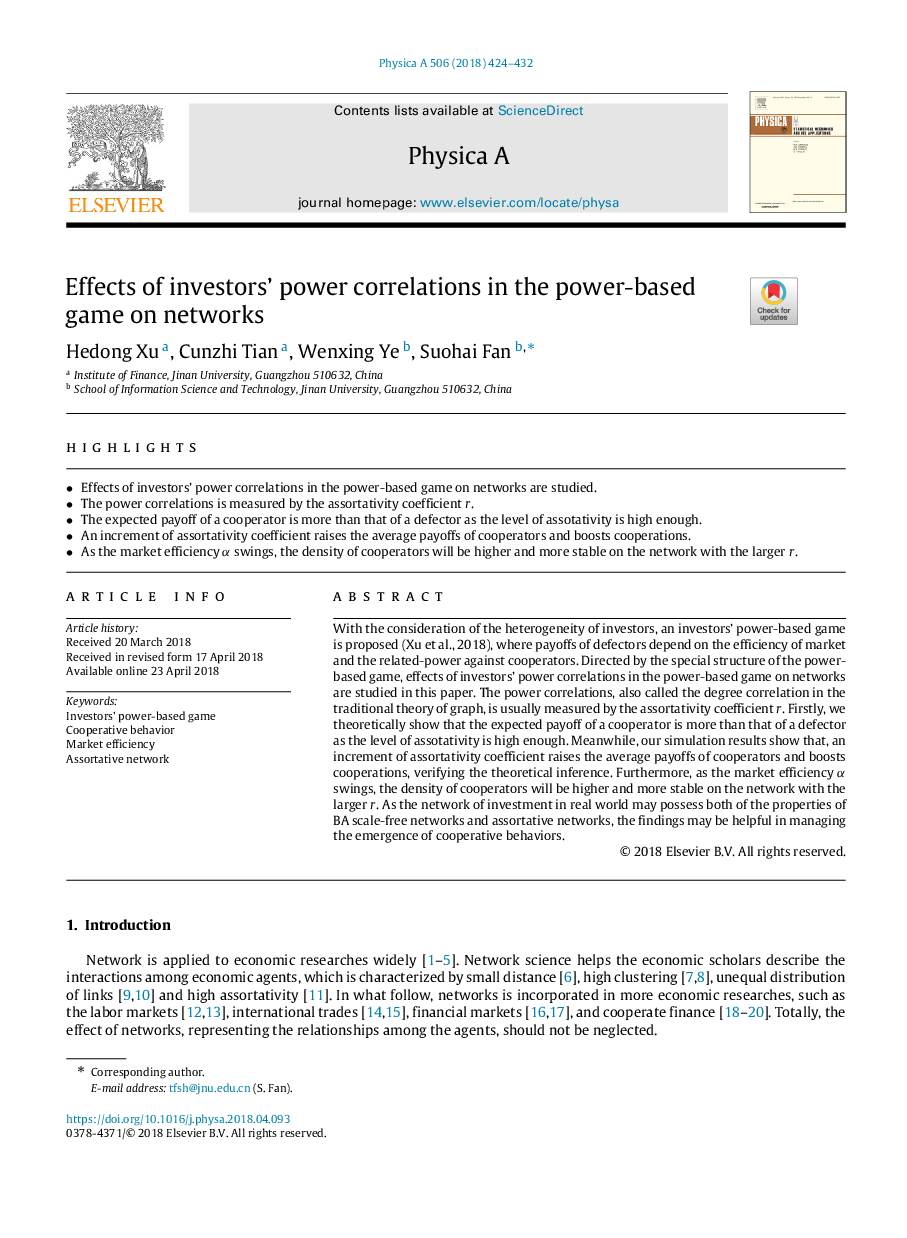| Article ID | Journal | Published Year | Pages | File Type |
|---|---|---|---|---|
| 7375126 | Physica A: Statistical Mechanics and its Applications | 2018 | 9 Pages |
Abstract
With the consideration of the heterogeneity of investors, an investors' power-based game is proposed (Xu et al., 2018), where payoffs of defectors depend on the efficiency of market and the related-power against cooperators. Directed by the special structure of the power-based game, effects of investors' power correlations in the power-based game on networks are studied in this paper. The power correlations, also called the degree correlation in the traditional theory of graph, is usually measured by the assortativity coefficient r. Firstly, we theoretically show that the expected payoff of a cooperator is more than that of a defector as the level of assotativity is high enough. Meanwhile, our simulation results show that, an increment of assortativity coefficient raises the average payoffs of cooperators and boosts cooperations, verifying the theoretical inference. Furthermore, as the market efficiency α swings, the density of cooperators will be higher and more stable on the network with the larger r. As the network of investment in real world may possess both of the properties of BA scale-free networks and assortative networks, the findings may be helpful in managing the emergence of cooperative behaviors.
Related Topics
Physical Sciences and Engineering
Mathematics
Mathematical Physics
Authors
Hedong Xu, Cunzhi Tian, Wenxing Ye, Suohai Fan,
